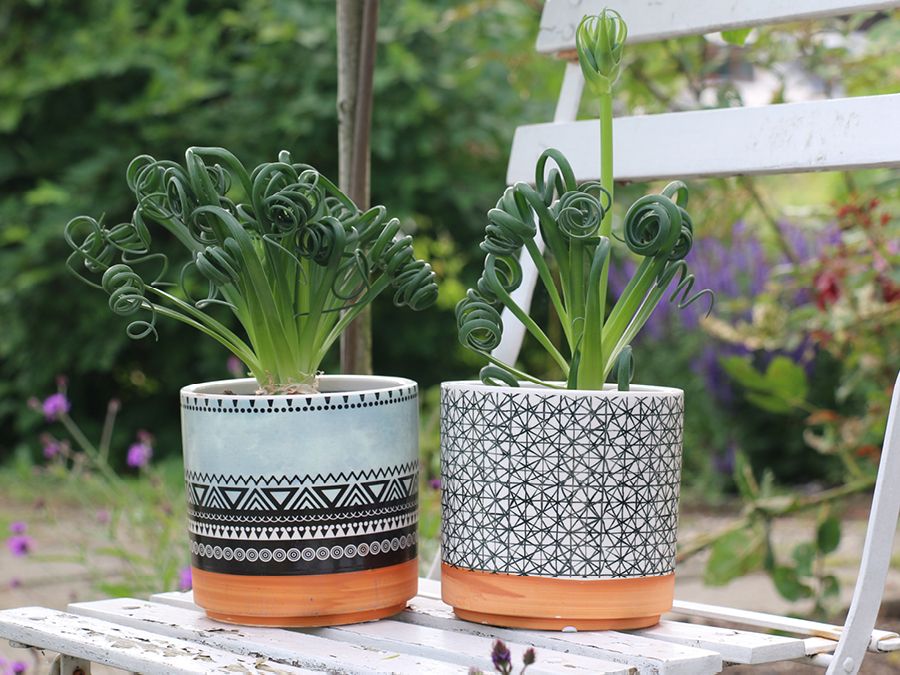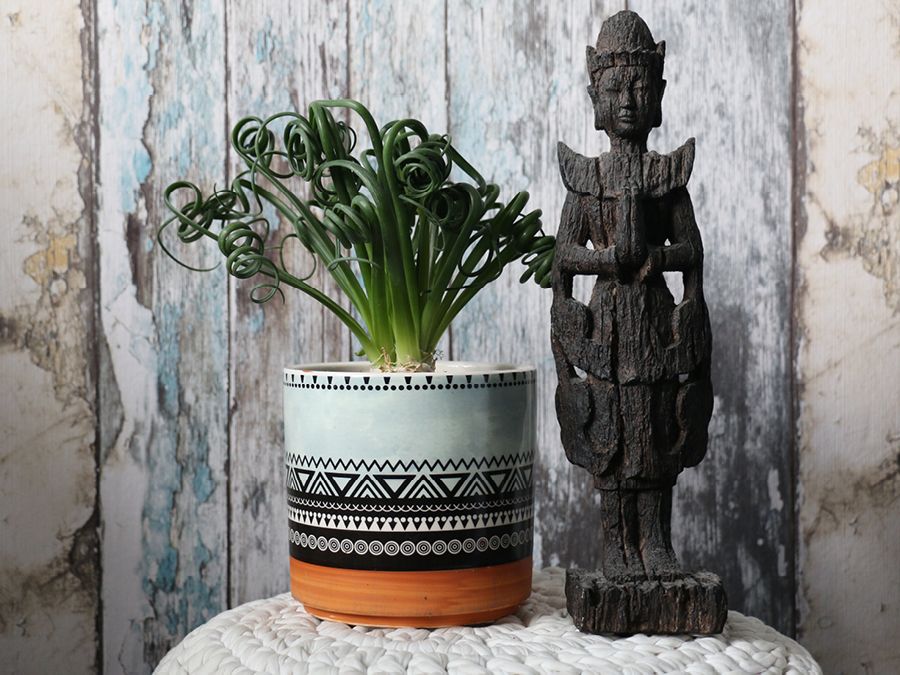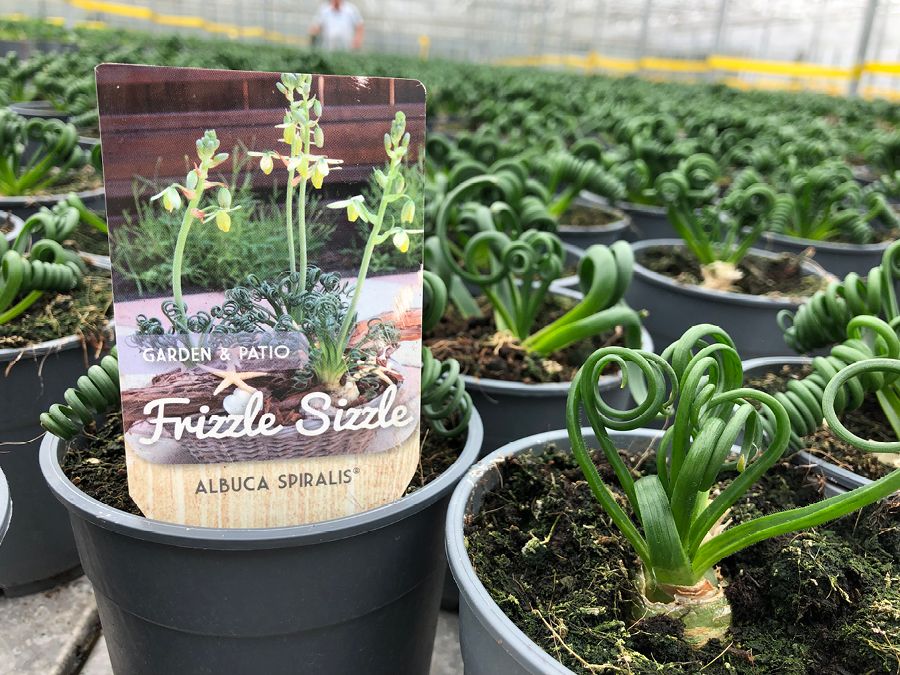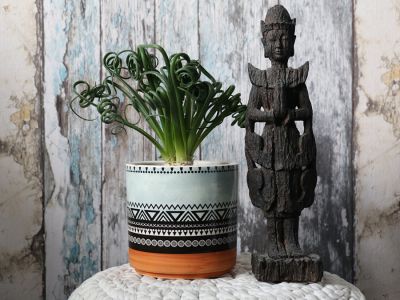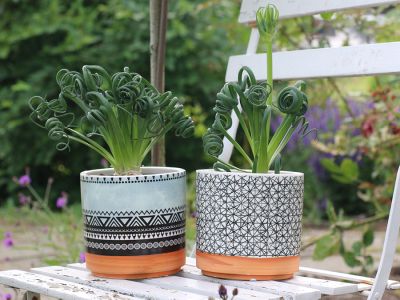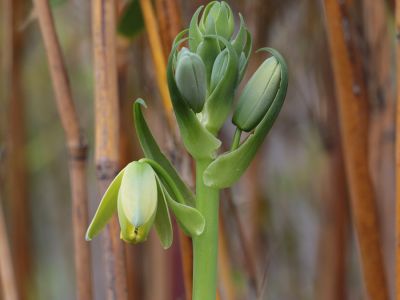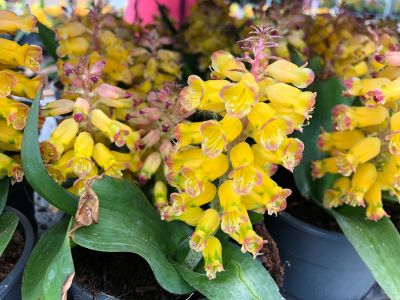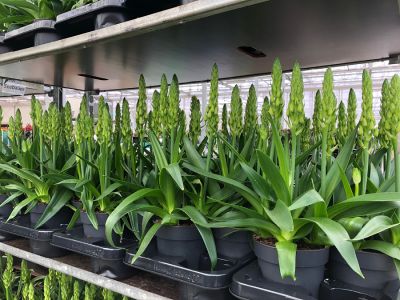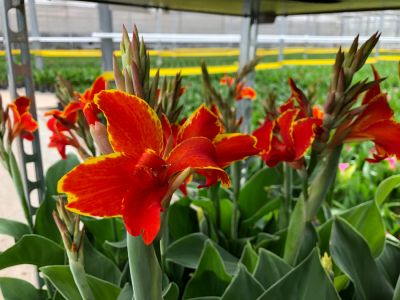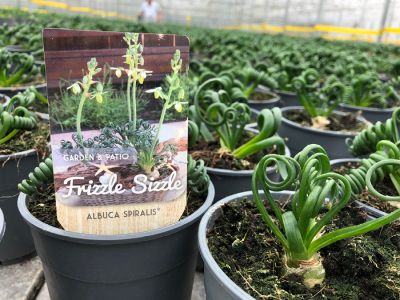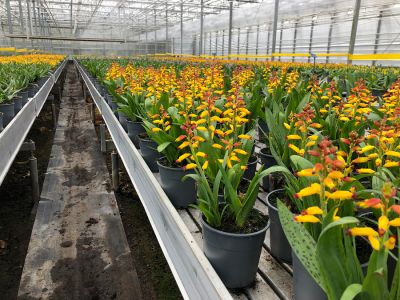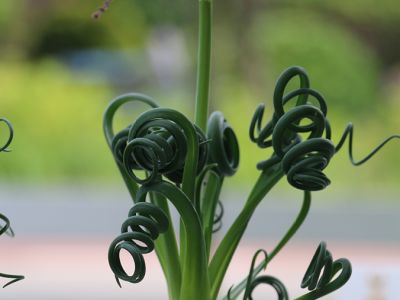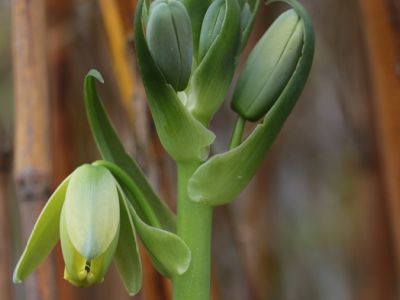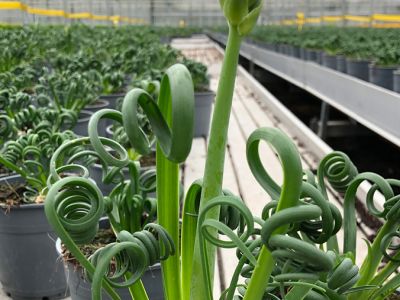Albuca spiralis Frizzle Sizzle
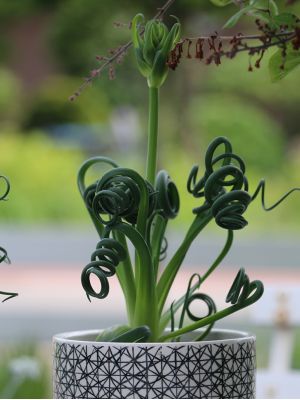
Calendar
In the spotlights
"Frizzle Sizzle" ... the name already has something attractive. This nice plant has fresh yellow flowers and spreads a delicious lemon-like scent. But with her beautifully curled leaves she really steals the show. In the spotlight this month; Albuca Spiralis "Frizzle Sizzle". We visited grower Vreugenhil Bulbs and Plants.
Curly leaves
"What kind of strange thing is that?" Was our response when we arrived at the grower. "Is this an improved variety?" was our second question. The curls of this beauty are so special, we naturally wanted to know everything about it.
The leaf does not naturally curl like this. Indeed, a breeder has bred the Albuca in this way and the more light she gets, the better her leafs curl.
A South African connection has recommended this product to Vreugdenhil. And because this grower is specialized in the cultivation of bulbs and tubers, and has set up a very nice African concept, this beauty fits extremely well in the assortment. According to the grower, the "Frizzle Sizzle" is a unique product that unfortunately is rarely found in the florist shops!
African roots
"Frizzle Sizzle" originates from Africa. Vreugdenhil Bulbs & plants grows it under the African Breeze brand. Various products from this brand originate from Africa. A total of eight products from the Vreugdenhil range fall under the African Breeze brand: Ornithogalum Dubium, Ornithogalum Thyrsoides, Scilla Peruviana, Ensete Maurelli, Albuca Spiralis 'Frizzle Sizzle', Lachenalia and Pennisetum. These are all bulbous and tuberous crops.
The African Breeze brand has a fresh appearance and can be traced back to the origins of colorful Africa with its bright colors. The concept has been supplemented with beautifully colored packaging material and nice matching pots.
WWF
In total, the company grows 900 different types of plants. A large nursery with a wide range! The Amaryllises are grown in Zambia in the fall. The climate here is very favorable for growing these bulbs. To strengthen the African connection, the nursery supports the Carnivores in Zambia with the Zambian Carnivore Program. The Zambian Carnivore Program (ZCP) supports and protects all major carnivores in Zambia. Training and guiding the local population is also of great importance. By training the local population, they try to make everyone aware of how important the animals are to Zambia. This is done in collaboration with the World Wildlife Fund. Part of the profit therefore always goes to this project. The goal is to be able to transfer 10,000 euros to the fund this year!

Care
The Albuca originally grew around Cape Town, South Africa and in the desert of Namibia. It is therefore easy to explain that she needs little water. Ideal for a warm living room with lots of light, anywhere in the world! If you water her once every two weeks, that's more than enough! She feels equally at home inside or outside. However, don’t leave her out when there’s night frost because this lady is very picky and cannot tolerate less than 5 degrees Celsius.
In the desert, the plant grows when the first rain falls; comparable to the Dutch autumn. The plant continues to grow in the winter so that it can flower in the spring. In the summer she stays very quiet because normally it would be too hot in the desert to bloom. Do you want the plant to flower again? Do not give water in the summer and mimic the dry period of the desert. If she likes it, she automatically multiplies.
The cultivation
The company specializes in the cultivation of bulbs and tubers. Rob Klop, the company’s sales representative, took us on an adventure through their cultivation. We have seen two of the four locations. Various varieties of bulbs and tubers are grown in pots on a large scale in the greenhouse. In addition to their own locations, the company has three partners. Together they own eight greenhouses filled with the most beautiful cultivations.
Bulb crop
The Albuca Spiralis is a bulb plant and is grown in the Westland. During our tour we met Gert. Gert grows the Albuca Spiralis and talked passionately and enthusiastically about this curling bulb. The crop has now been grown for about five years and remains very exclusive, because it is not grown in large numbers. The grower himself is particularly fond of the leaves. It is not often that the flower is outshone by the beautiful leaves. This makes the "Frizzle Sizzle" really special. The more light she gets, the better her leaves curl.
Automation
Around 140 people work in the company during the quiet periods. In the busy periods before Christmas, when the Amaryllis has its peak, around 350 people work there. You would expect that in such a large company everything will be automated as much as possible, but that is not the case. On the contrary, their work is very hands on and all plants are carefully viewed and processed, partly because the plants must meet all kinds of quality requirements.
Labels, quality marks and FSI
All the company's products are also sold under the Decorum label. Decorum Plants & Flowers is a growers' cooperative with more than 50 members. Together these growers market more than 4000 products under the Decorum and Feel Green brands. Decorum stands for quality, sustainability and innovation.
The company is also tested for its sustainability. For example, they carry the MPS SQ quality mark and the GLOBAL GAP quality mark. Requirements have been formulated for MPS GAP for production in the field of traceability, environment, safety and hygiene. Both quality marks are highly regarded in the industry and belong to the FSI: Floriculture Sustainability Inititative. This initiative brings the entire chain of the flower industry together and works together to improve sustainable working methods and to stimulate positive change in sustainable production and trade. On their website, they assess the various quality marks that can be used to demonstrate the standard in the market.
FloraPodium, 10 June 2019






